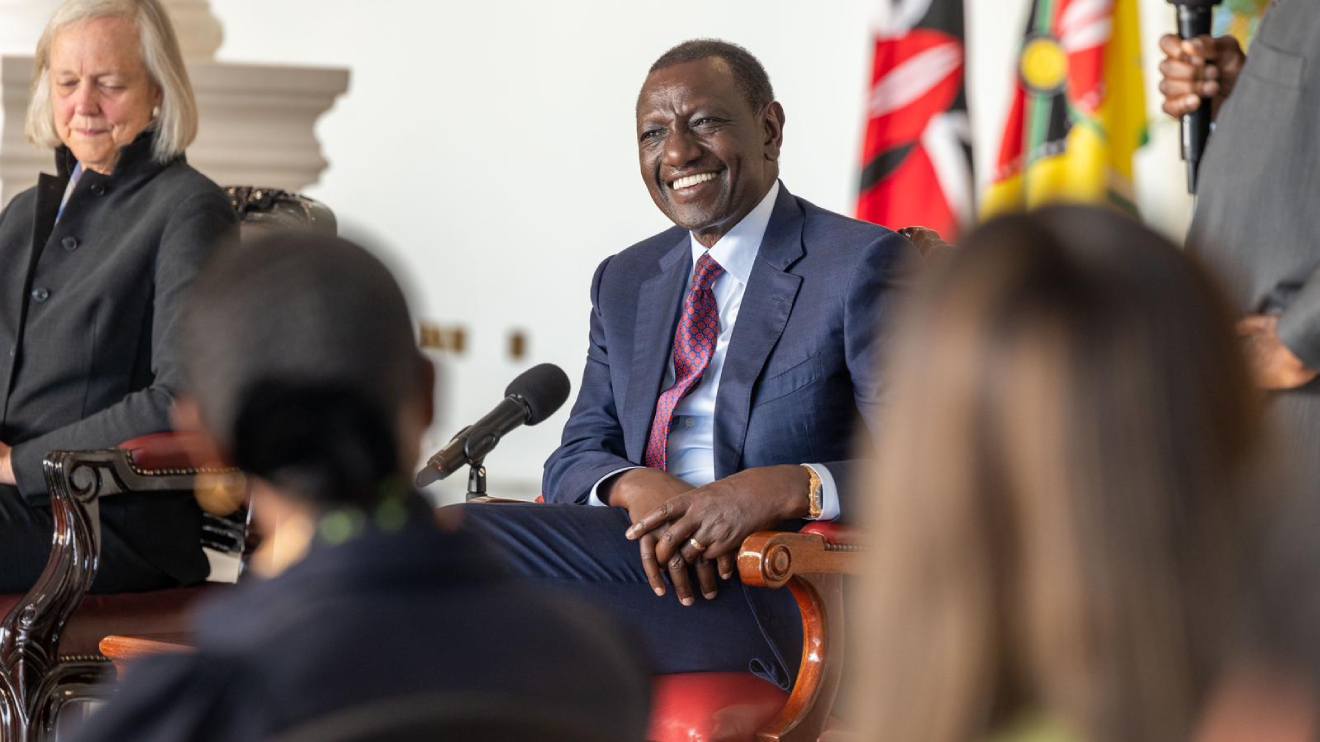In a startling declaration, President William Ruto unveiled the government's intention to heighten taxation on Kenyan citizens, citing a pressing need to alleviate the country's debt burden.
Speaking to a gathering of Harvard University students at Nairobi's State House, Ruto emphasized his determination to steer Kenya towards financial stability without resorting to further borrowing.
"At the end of my term, I want to leave it between 20 per cent and 22 per cent," Ruto asserted, underscoring his ambition to substantially increase the tax burden on Kenyans.
This announcement comes as a sharp blow to citizens already grappling with soaring living costs and hefty taxes.
Ruto outlined the government's strategy, disclosing plans to escalate taxation from the current 14 per cent to 16 per cent by the close of 2024, and ultimately to a staggering 22 per cent by the conclusion of his tenure.
Read More
Defending his stance, Ruto highlighted Kenya's comparatively low tax rates vis-à-vis other African nations, suggesting that the proposed hike is essential for fiscal parity.
"Kenyans have been socialized to believe they pay a lot of taxes, but empirical data shows that Kenya last year our tax was at 14 per cent," Ruto contended, urging citizens to accept the necessity of increased contributions to the national exchequer.
He pointed to France's tax rate of 45 per cent, framing his objective as relatively modest in comparison.
However, Ruto's pronouncement has ignited widespread concern among Kenyans, already reeling from the economic strain of the pandemic and previous tax increments.
The recent gazetting of the Finance Bill, 2024, has further fueled apprehension, with proposed measures including a motor vehicle tax, a minimum top-up tax for multinationals, and a potential revision of VAT on bread.
While the Treasury initially mooted a hike in bread VAT, Ruto intervened to suspend the proposal, recognizing its potential to exacerbate the cost of living for ordinary Kenyans.
Nevertheless, the prospect of heightened taxation looms large, casting a shadow over citizens' financial prospects and eliciting criticism from economists and the public alike.
As Kenyans brace for the impact of these fiscal reforms, the debate over the balance between debt management and citizen welfare intensifies.
With livelihoods at stake and economic pressures mounting, the government faces a delicate balancing act in navigating Kenya's fiscal future.


-1755100273.jpeg)
-1756474472.jpg)




